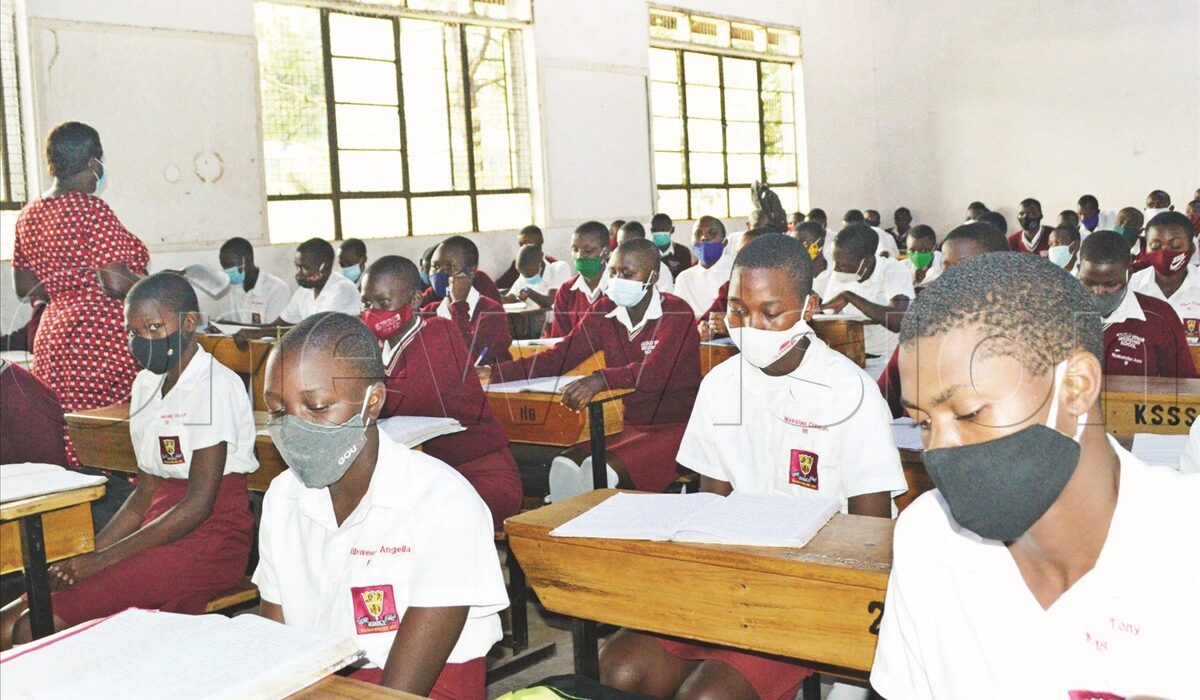This opinion was first published in the New Vision on March 31, 2021
Dr Chrysestom Muyingo
Uganda is gradually coming to terms with the impact of the COVID-19 pandemic on all its spheres of operations. We all now get to acknowledge more than ever before that digital literacy has become a critical skill necessary for the delivery of education and other services.
In the education sector, there is now a gradual re-opening of schools and all other academic institutions. This COVID-19 attack in all parts of the world should leave a lesson for all of us in governments, school communities, and as teachers to have a digitally competent teaching workforce.
I’m aware that teachers are the vehicles through which these skills are passed on to learners. We were all rendered helpless when the schools had to close because of the COVID-19 pandemic. Learning stopped for a while because we could not take advantage of digital technologies to continue teaching.
We were caught unprepared, and the best we could do in the emergency was to prepare and print home study materials to support home-schooling. We have been in this situation for one year now.
21st Century Skills
It is understandable that, at the time, we had never imagined that all schools would have to close prematurely and that the full re-opening would take almost a year. The whole delayed opening for all classes; is in place to protect our parents, students, and teachers from a massive spread of COVID-19. This situation allows us to plan better for such conditions or similar problems in our country.
It is unlikely that we will resume completely regular schooling soon, and, therefore, our teachers must prepare to implement new teaching and learning methodologies.
I call upon you to develop a positive attitude towards Information and Communications Technology (ICT) because it is now the way to go.
We must embrace and integrate the 21st century skills in all we do so that we can master the skills and empower our learners.
Please ensure you are not caught in a situation where the learners are more digitally competent than you.
Remember, they are young and quickly adapt. As teachers, there is an urgent need to adjust to the new technologies and effectively position ourselves as facilitators of learning.

We must also pay attention to the linkage between the teachers and students, technology usage to teach during this time of the COVID-19 period, and its aftermath.
The gradual shift to online learning also raises attention to the value of and demands on the teacher-student interactions and the importance of connected interactions. The big question for me is how we can develop a technology solution in teaching, which capitalises on the relationship between students and teachers instead of just broadcasting the content for them.
Digitisation
Fortunately, the current Government national planning frameworks (NDP III, Vision 2040, National Resistance Movement Manifesto) all strongly support public services’ digitisation, including education. You are already aware that we are developing a Digital Agenda for the Education and Sports Sector, and we hope that it will trigger investment in ICT for education. This investment will help us manage the current challenges around access to digital education services. We plan to train all the teachers across the country to use ICT as a pedagogical tool, and we are hopeful that together, with our development partners and other government agencies, we will one day get to where we want to be.
I want to thank our development partners, especially Enabel, VVoB, and UNESCO, that quickly developed a response strategy and supported the Colleges’ teacher educators to promptly acquire skills to enable some learning experiences to take place during the lockdown.
I thank all our partners who have continued to support the sector in general and those supporting the Teacher/Tutor, Instructor Education and Training department. I sincerely thank all of you who have contributed to the education sector’s success in many ways. As the Ministry of Education and Sports leadership, we pledge our continued commitment to initiatives that will empower our teachers to be a digitally competent teaching workforce with the skills necessary for the 21st century.
Transforming Education Sector
The times have changed in this 21st century, and we must also change.
The COVID-19 pandemic helped us see the realities faster. We must not lose focus.
At all our levels, we need to change for the continued transformation of the country’s education sector.
I also call upon all of you to always remember that COVID-19 still exists in our communities. We should continue to adhere to the guidelines, and the Standard Operating Procedures issued for our safety. Wear your masks and protect yourself and your families and our learners.
The writer is the State Minister for Higher Education and Member of Parliament for Bamunanika County in Luwero district.

